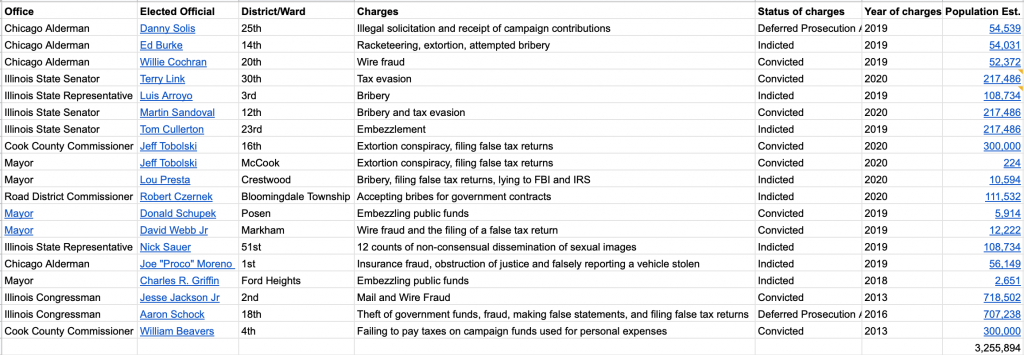How many people need to be affected by a problem before elected officials decide it is worth seriously confronting? A quarter of million people? Half a million people?
In the aftermath of Gov. Rod Blagojevich’s federal corruption conviction, it’s a safe bet that many people in Illinois felt disgusted and betrayed by his actions. Rather than working to make their lives better, he was trying to sell one of our U.S. Senate seats to the highest bidder.
When his actions became public knowledge, lawmakers of both major parties unified to impeach and remove the Governor from office. Yet, that bipartisanship was short-lived and didn’t continue long enough to make a real difference. The recommendations of the Illinois Reform Commission, which was tasked with providing a roadmap to correct corruption, largely were ignored by state lawmakers.
As a result, more than three million people — or roughly 25% of the state’s population — have been represented by an elected official who has either been indicted or convicted of federal crimes in the decade since Blagojevich’s criminal actions. Nineteen elected officials have been charged or convicted since then. They serve, or have served, areas representing more than three million Illinoisans on either the local, state, or federal level. Perhaps that additional unethical behavior could have been avoided if lawmakers would have adopted new anti-corruption laws ten years ago.

Some people continue to argue that those public officials who abuse their power are simply “bad apples” who don’t reflect the system as a whole.
That ought to be a tough sell to the three million people who have been represented by corrupt officials in Illinois. Unless lawmakers get serious about substantial ethics reforms, that number only will continue to rise as people will continue to be ignored by officeholders who are enabled and allowed to put their personal gains ahead of their duty to serve the people.
Government trust won’t be repaired by every candidate seeking public office pledging to “fight corruption” in their campaign mailers. It’s going to take meaningful actions from those who are in office.
As we continue to see the fallout from the federal probe of Commonwealth Edison’s influence peddling in the months ahead, lawmakers have an opportunity to make a real, lasting difference. They can end gerrymandering by putting in place an independent redistricting commission. They can stop the revolving door that allows lawmakers to become lobbyists within 24 hours of leaving public office. They can empower the Legislative Inspector General to be truly independent allowing that person to do the job unimpeded. And they can stop lawmakers from using political connections for personal gain by stopping them from lobbying other units of government.
These are not new or groundbreaking ideas, nor are they all that should be adopted. In fact, they only would put us in line with many other states that have already implemented these steps to deter corrupt behavior.
Last year, following the indictment of state Rep. Luis Arroyo, CHANGE Illinois published a series of recommendations as a path to restore government trust, but an entire year has passed and we have yet to see even recommendations from the commission of officials who were tasked with looking into ethics and lobbying reforms.
The state of denial by many of our current public officials needs to end during the fall veto session that is supposed to convene after the election. We need lawmakers to confront this challenge head on now. There are too many people in Illinois whose concerns have gone unanswered. Too many Illinoisans have been damaged by the many “bad apples” and those who continue to enable them. We owe it to the next generation of Illinoisans to make lasting changes to stem the corruption in our state.
